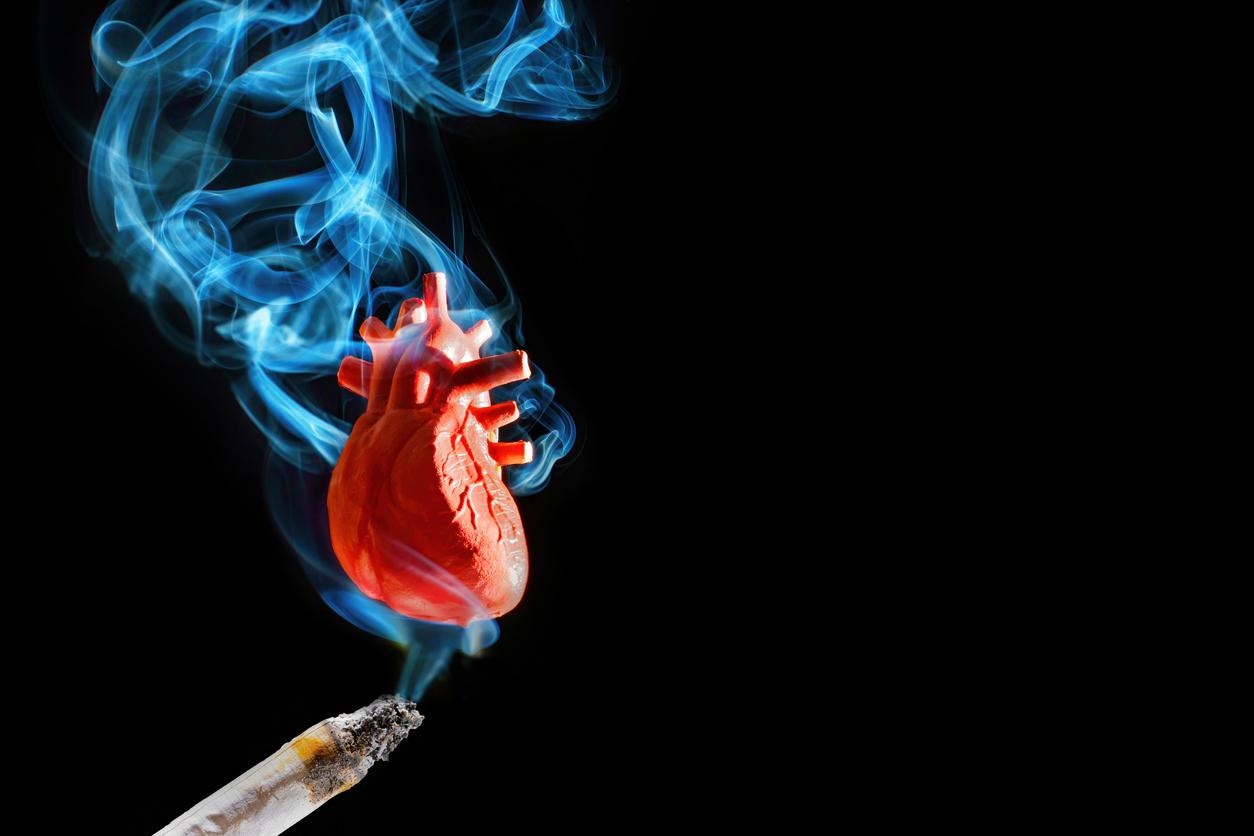Snacking, anxiety … many people have already found that quitting smoking can result in rapid weight gain. If this is not systematic, researchers at the University of Athens still wanted to know the mechanism linking smoking cessation and weight gain.
In a small study, presented at the International Congress of the European Respiratory Society (ERS) in London, and relayed by EurekAlert, Greek scientists sought to demonstrate that tobacco acted directly on the levels of ghrelin, a digestive hormone that controls our appetite.
A simple but effective experience
To achieve this, the researchers recruited 14 healthy male smokers. To compare the effect of smoking and abstinence on their diet, taking into account the feeling of fullness, they separated the participants into two groups. In both cases, the participants had spent a night without tobacco or food.
In the first experiment, “C-cig”, participants could smoke their usual brand of cigarettes. In the second, “S-sham”, they had to hold their cigarette, without lighting it, as if they were consuming for real. Each test lasted 15 minutes and 45 minutes after completion, with participants being able to choose from a variety of snacks on offer. Food intake, sense of appetite (hunger, fullness, desire to eat) and desire to smoke of participants were recorded. A blood sample was also taken in order to analyze the levels of various hormones, including ghrelin, obestatin, or even insulin.
Smoking acts on the hunger hormone
As a result, the group of smokers consumed an average of 152 calories less than that of abstainers. A result, which the authors consider “statistically significant” because it indicates that smoking has a direct effect on food intake. In addition, by comparing the results of the two groups, the researchers found that in the group of abstainers, the levels of ghrelin, this “hunger hormone”, took longer to decrease. After a meal, when a person has eaten enough, a decrease in the levels of ghrelin secretion occurs in the stomach in order to make the brain understand that the latter has reached satiety (an antagonistic hormone, leptin, then takes over ).
Hence the higher caloric intake observed in the group of abstainers and which confirms that smoking cessation increases appetite, therefore caloric intake and a fortiori, weight gain.
“This small study shows that smoking has a direct effect on calorie intake, which could be explained by alterations in ghrelin levels,” conclude the authors, who call for further research to confirm these early results.
















